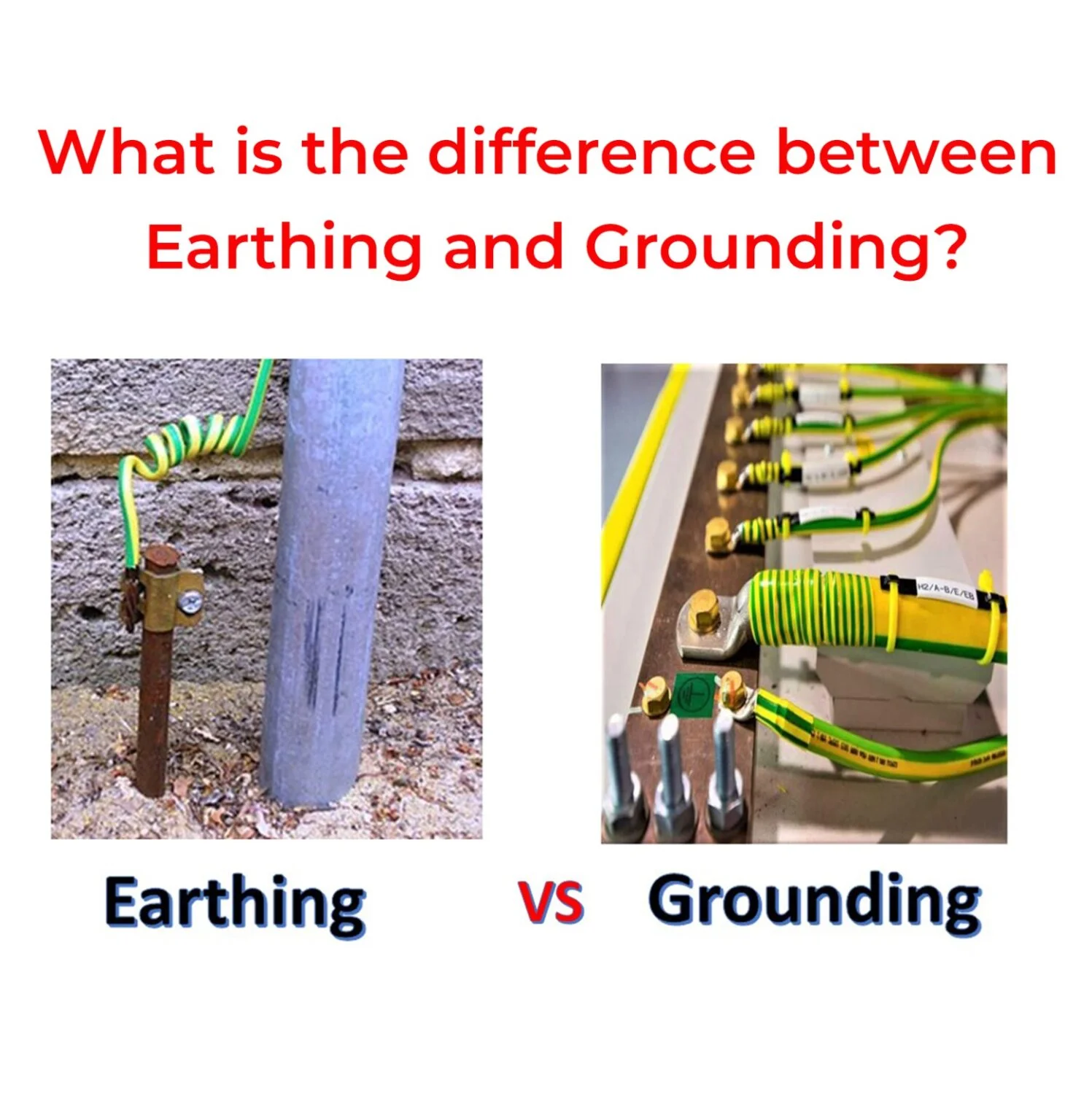
What Is The Difference Between Earthing And Grounding?
Grounding and earthing are two terms that are often used interchangeably but have different meanings and purposes in electrical engineering.
Grounding is the connection of direct current-carrying parts of electrical devices to the earth, for example, the metal housing or housing.
This is to provide a safe path for leakage or short circuit current to flow to the ground and to prevent electric shock to people or animals if they come into contact with the equipment.
grounding also protects equipment from lightning strikes and provides a reference point for voltage levels in the system. The ground wire used for grounding is usually green².
Grounding refers to the connection of the live parts of electrical equipment to the earth, such as B. the neutral or return conductor.
This is to provide a return path for the currents flowing in the circuit and to balance unbalanced loads in the system.
grounding also eliminates surges and rejects surges to earth. The wire used for grounding is usually black. The main difference between grounding and grounding is that grounding is intended to protect people and animals from electric shock, while grounding is intended to protect electrical equipment from damage.
Another difference is that grounding is a physical connection to the earth, whereas earthing is not necessarily a physical connection but a potential connection to the earth.

